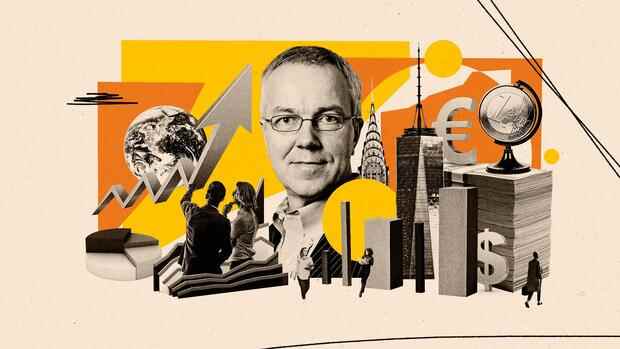Handelsblatt International correspondent Torsten Riecke analyzes interesting data and trends from all over the world in his weekly column. You can reach him at [email protected].
(Photo: Klawe Rzeczy)
Berlin An intelligence chief who predicts a long cold war. A high-ranking EU official who, by her own admission, now “must destroy” free trade instead of promoting it. An ambassador who not only notes a turning point in Germany, but worldwide. Notes from last week’s reporter’s block. Notes that herald the end of an era without us yet being able to see what comes after.
Saying goodbye to the “world of yesterday”, to quote Stefans Zweig’s famous “Memoirs of a European” from the dark times of the 20th century, will not be easy for us. Politically, culturally and economically, the world that just appeared to us as a global, hyper-connected village is disintegrating into two hostile blocs that are trying to isolate themselves and reduce the influence of the other.
Above all, we can only guess at the economic consequences of this division. Less economic interdependence also means less economic growth, less competition and less innovation. For an export nation like Germany in particular, this means high depreciation losses.
The economic sanctions against Russia, military aid to Ukraine, the international ostracism of Russian President Vladimir Putin – all of this is right and important. But it doesn’t answer the question of what our world should look like tomorrow. Everyone is now searching: Foreign Minister Annalena Baerbock is looking for a “national security strategy”, the EU is looking for a “strategic compass” and NATO is looking for a “strategic concept”. In doing so, we must not only keep an eye on the warmonger in the Kremlin, but also on his intellectual accomplice in Beijing.
Top jobs of the day
Find the best jobs now and
be notified by email.
Overnight, the economy and globalization have gone from being guarantors of peace and prosperity to becoming weapons in the geopolitical struggle of the great powers. Germany’s “defensiveness”, which Baerbock is now demanding, not only includes military armament, but also the geo-economic power of the German economy. The geo-economic balance of power clearly speaks in favor of the West: the economic power of the NATO countries clearly exceeds that of Russia and China. The world currency, the dollar, and America’s technological superiority reinforce the lead.
As a weapon, however, the economy is a double-edged sword that always hits us as well. That’s not the only reason why we have to deal with it wisely. As on the military battlefield, the economic war against Putin needs clearly defined goals. This also includes making sure that the conflict does not get out of control. That means our focus should be on Ukraine. It is primarily about “containment” and not about “regime change” in Moscow. The latter can only come from the Russians themselves.
More: Joseph Stiglitz: “We are experiencing a crisis in a completely new dimension”

